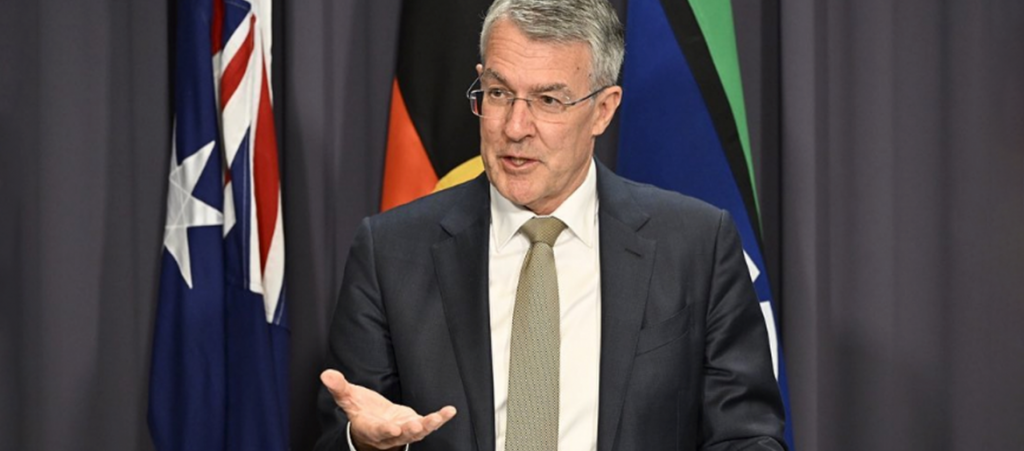
One of the biggest voting issues from the 2021 federal election has actually been delivers – a national anti-corruption body. After two failed proposals (and a lot of other related news over the years), Labor’s proposal to establish a National Anti-Corruption Body is ready for action. We’ve come a long way, folks!
We’ll keep an eye on this one as it progresses so you can understand what it means, where it’s at, and how effective it will be at cracking down on sus behaviour in Australian politics.
FIRST PUBLISHED: 28 September 2022. LATEST UPDATE: 3 July 2023.
What’s in the National Anti-Corruption Commission bill?
You can read the full draft Bill here, but here’s our snappy breakdown.
- The National Anti-Corruption Commission (NACC) will be led by an National Anti-Corruption Commissioner (Commissioner). This person will be a retired judge, appointed by the government, and will hold the role for five years max. Three Deputy Commissioners will also be government appointments; two of these must also be retired judges and the third must have a relevant area of expertise. The first ever Commissioner is Paul Brereton – he was previously head of the investigation in Australian war crimes in Afghanistan, which you probably know as ‘the Brereton Report’
- NACC will investigate serious or systemic issues of corrupt conduct of not only politicians, but also public officials, staff, government agency employees and contractors. It will have retroactive powers to investigate things that happened before it was established.
- Anyone can refer an issue to the NACC, and there will be protections in place for whistleblowers, journalists and informants.
- The Commissioner will have the power to require evidence, statements or information to be given to NACC. They can also hold public or private hearings, and has the power to call people as ‘witnesses’. Most hearings would be held privately by default, but that public hearings can be held if it’s an exceptional situation that is in the public interest. Brereton said the considerations for holding a public inquiry will be: “The significance of the alleged corrupt conduct, the desirability of exposing evidence of it, and the appropriateness of public scrutiny of our activities, weighed against any unfair prejudice to a person’s reputation, safety or well-being that might be caused if the hearing were held in public.”
- At the conclusion of an investigation, the Commissioner will release a report on their findings, which will include recommendations about what should happen next. The recommendations would apply to both the particular case or person being investigated, but also suggestions for how to prevent something similar happening again.
- A Parliamentary Joint Committee will oversee the NACC. It would consist of 12 MPs: six nominated by the government, four by the opposition, and two by the independents and minor party MPs. Half will come from the House of Representatives, half from the Senate.
Labor says it will cost $262 million over the next four years to set up and fund the first term of the NACC.
A joint committee led by Helen Haines has examined the bill, including input from public submissions, and released recommendations for changes to be made. The Labor government has taken these suggestions on board, and announced that they will introduce them. Amendments introduced on 22 November 2022 include the following:
- Specific protections for journalists and their sources in relation to search warrants
- Narrowing the definition of ‘corrupt conduct’
- Requiring the Commissioner to advise the person being investigated of the outcome of the investigation, in addition to releasing the report
You can see the full list of amendments here.
— Mark Dreyfus (@MarkDreyfusKCMP) September 27, 2022
How does the NACC differ from previous proposals?
Over the past few years we’ve seen similar promises and proposals that haven’t been successful. Here’s how the new Labor bill compares to:
Liberal Party ‘Commonwealth Integrity Commission’ (2018): This was the plan that Scott Morrison promised to deliver if he won the 2019 election – but quietly abandoned after. That’s fine because it wasn’t a strong plan anyway. Unlike the NACC, the Liberals’ commission would not allow the public to send in tips, the investigations would never be made public, and it would only be able to investigate potential criminal offenses.
Greens’ National Integrity Commission’ proposal (2019): As we’ve written about before, the Greens have been pushing for this for a long time. Their proposal is very similar to the current NACC bill – which makes sense, as Labor has supported their version in the past.
Helen Haines ‘ Australian Federal Integrity Commission’ proposal (2020): This bill was quite similar to what Labor is now proposing. The key differences are that Haines’ plan also included creating a parliamentary code of conduct (which is being established separately) and put an emphasis on education to prevent future misconduct scandals. This was the plan that Liberal MP Bridget Archer supported and voted for, going against her party’s wishes. Labor and the Greens also supported Archer’s plan at the time.
Joint statement from members of the crossbench: we are united in a will for a better standard of politics, and an integrity watchdog that will be respected by the public and improve trust in our democracy, just as our communities are. pic.twitter.com/tgNGOPwa2P
— Helen Haines MP (@helenhainesindi) September 25, 2022
Who is on board?
So far, there has been general support from all sides of Parliament on this issue. The general agreement is that’s a long overdue and necessary institution. The main point of disagreement is about which hearings should be held publicly.
Liberal Party: Brace yourself… Opposition Leader Peter Dutton said the Coalition is likely to support this model. He voiced concerns around the ability of the NACC to hold public hearings, and wants the bill to make it clearer when that will be allowed (implying that it should be a very high threshold).
The Greens: The party is mostly in support of the bill. However, they want to remove the ‘exceptional circumstances’ clause for hearings to be held publicly. It’s their preference that anything in the public interest, gets a public hearing. With the new amendments announced, the Greens also want the government to clarify (and possibly revert) why the scope of corrupt conduct has been narrowed to possibly exclude certain actions from being investigated.
Independents: So far, it looks like all independent candidates share the Greens’ point of view. The likes of Zali Steggall, David Pocock, Monique Ryan, Helen Haines have all indicated they are willing to work with Labor, so long as the threshold for public hearings is lowered.
Jacqui Lambie Network: Lambie is in support of the NACC in principle, and has said she would also like hearings to be public.
One Nation: Pauline Hanson wants the NACC to investigate the ABC, over an expose they ran on One Nation’s corruption. Kinda tricky to decipher whether that means she’s for or against it, to be honest?
What happens next?
UPDATE: The NACC officially opened for business on 1 July! In its first two days, NACC Chief Commissioner Paul Brereton said 44 referrals had been made online. Greens Senator Barbara Pocock has referred consultancy firm PwC over their leaking confidential federal budget information to commercial clients.
Not every single will receive a full investigation, of course. Brereton says the Commission is prioritising issues that are currently relevant, ones that are in the public interest, and those that have not already been investigated by another agency or government body.
On our wish list for investigation? Car park rorts, to secret ministries, or anonymous million-dollar donors… Take your pick.




Comments are closed.